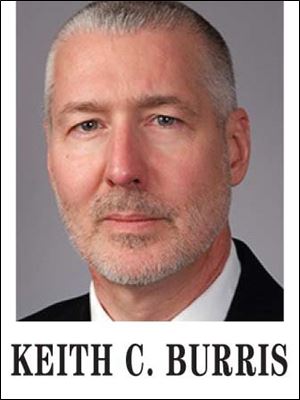
COMMENTARY
Get ahead of the heroin epidemic now
2/14/2014
For those of us who have spent most of our days in clean and well-lighted places, the heroin epidemic is a mind blower. Heroin is now a mainstream drug, and addiction to it cuts across demographic and socioeconomic lines. When I wrote about heroin recently, I got a huge number of emails. Many were powerful.
Here are three excerpts:
● “I have been a heroin addict for 29 years. I got involved with pain-killers after an injury and this evolved into a long-term heroin addiction, which eventually left me divorced, broke, and in prison, or on the street. And still, I used … I have never heard anyone describe the enemy in the war on drugs. Is the enemy the sick junkie who sells a few packets of dope to fuel his or her habit? ”
● “I am a former addict. My family is upper middle class and I am a mother of three small kids. A lot of people don’t realize how bad Toledo’s heroin problem is. I’ve lost a lot of friends to addiction. Rock bottom is not fun. I wish Toledo residents knew how close it is. Probably right next door.”
● “Most I used with back in the day are dead, either from overdoses, AIDS, or complications from Hepatitis C. I am blessed, and I know it. I am one of the lucky few who survived heroin addiction ... When I got off heroin I was fortunate to live in a long-term, very strict facility. In my opinion, we need those types of programs again ... young people are dying left and right and their parents just drop them off for their meeting. The parents need to get involved. Everyone wants the easier, softer way. It doesn’t exist.”
So, what now? This week, former mayor and current Councilman Jack Ford, who began his career in public service running a drug counseling and treatment program, held a news conference attended by four other members of City Council and the Toledo-Lucas County health commissioner, Dr. David Grossman. The group talked about what Mr. Ford called the hard “retail” work that needs to be done in Lucas County to combat heroin addiction. The immediate steps: public education and better reporting and gathering of statistics. We don’t know precisely how many people are dying because of heroin, and this information is knowable. We need to mandate its collection. The harder steps: Needle exchanges, methadone programs (that wean rather than maintain addicts), and a permanent residential treatment program. Years ago, Mr. Ford ran one called “The Road.” Such a program would cost big bucks, but Mr. Ford suggests one beginning approach might be for a hospital with spare beds to cordon off a wing and lease it to a well-organized start-up program. Mr. Ford and Dr. Grossman also agreed that the city and county should hire a temporary employee to coordinate local initiatives to combat heroin.
Other recommendations: Re-establish medication education for the elderly; crack down on pill selling at large housing units, and establish a heroin hot line which citizens could use to report hot-spot markets for heroin or prescription pill sales.
This problem is not going away. We need to get ahead of the curve.
Keith C. Burris is a columnist for The Blade.
Contact him at: kburris@theblade.com or 419-724-6266.